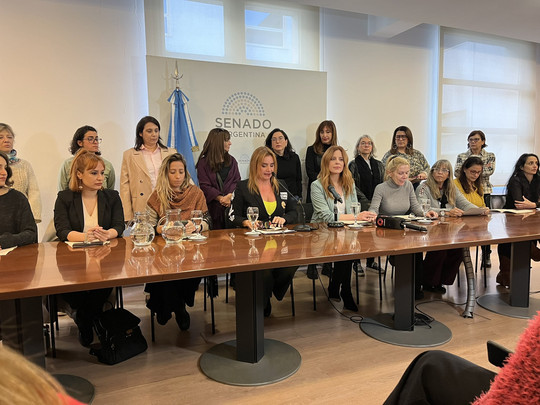On 2 July, the collective Periodistas Argentinas presented 19 testimonies of press workers and students who had been sexually harassed by journalist Pedro Brieger. In most of the cases, the workers' professional careers were affected by the harassment to which they were subjected and by the abuse of Brieger's position of power as a journalist and teacher. Ten days later, Brieger published a video on his social networks acknowledging the situation, expressing regret and apologising to the women who had been assaulted. This is a step forward compared to other similar cases because the journalist did what the collective requested, which was to apologise publicly.
The IFJ Gender Council (GC) recalls the importance of ratifying and implementing ILO Convention 190 on violence and harassment and calls on member states to ratify and implement it.
An ILO report dated January 2024 addresses the widespread problem of violence and harassment in the workplace and highlights the need for comprehensive measures, including international conventions and safety protocols, to combat these challenges globally. It notes that violence and harassment in workplaces around the world affects more than one in five people in employment. It underlines the significant impact of violence and harassment on individuals, businesses and society, exacerbated by changing working conditions such as digitalisation and work-life balance challenges.
The report highlights the importance of adopting comprehensive strategies, including ILO Convention 190 and occupational safety and health (OSH) measures, to prevent and address violence and harassment, while examining different national approaches and the effectiveness of collective bargaining agreements and legal frameworks to address this problem.
The GC reminds women journalists who suffer harassment in the workplace that ‘they are not alone’ and encourages them to report the situation and seek support from union representatives and journalists' organisations so that existing protocols are activated.
In addition, the Council insists on preventive measures to avoid that violence against women continues to be a reality and that gender inequality persists.
Finally, the GC recalls the IFJ's strategy against harassment and gender-based violence and encourages journalists' organisations and media to adopt similar protocols.

